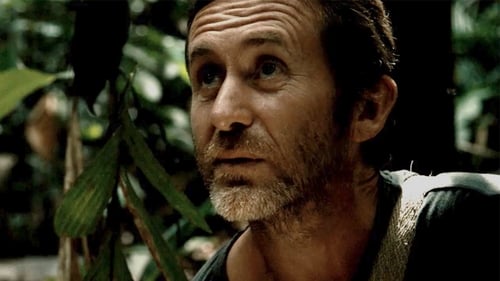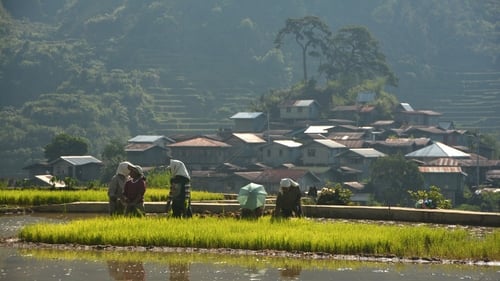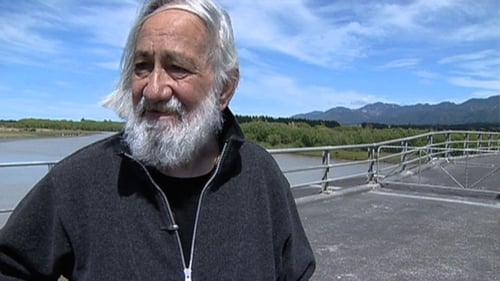La historia de Nunkui (2022)
Género : Drama
Tiempo de ejecución : 20M
Director : Verenice Benítez
Sinopsis
Nunkui is 13 years old and lives in an Amazonian Shuar community with her grandparents, uncles and cousins. She frequently dreams of the feminine spirit of the garden, named Nunkui like her. The girl does not know this spirit, she does not understand her dreams and is afraid; she fears that it is a dangerous spirit, an Iwianch. Curiosity, anguish and food shortages lead Nunkui to discover the knowledge of Rosa, her great-aunt, who still cultivates a traditional garden (aja shuar). Little by little, the garden and the sacred songs (anents) become a refuge for the young woman.

Explorer Bruce Parry visits nomadic tribes in Borneo and the Amazon in hope to better understand humanity's changing relationship with the world around us.

For ancient Mayans, cocoa was as good as gold. For subsistence farmer Eladio Pop, his cocoa crops are the only riches he has to support his wife and 15 children. As he wields his machete with ease, slicing a path to his cocoa trees, the small jungle plot he cultivates in southern Belize remains pristine and wild. His dreams for his children to inherit the land and the traditions of their Mayan ancestors present a familiar challenge. The kids feel their father's philosophies don't fit into a global economy, so they're charting their own course. Rohan Fernando's direction tenderly displays a generational shift, causalities of progress in modern times and a man valiantly protecting an endangered culture. Breathtaking vistas of lush rainforests contrast with the urban dystopia that pulled Pops children away from him. Will one child return to carry on a waning way of life

"Los Perros Hambrientos", de Luis Figueroa, se basa en la novela de Ciro Alegría, perteneciente a las llamadas "Novelas de la Tierra", penetradas de un sentido de indisoluble unión genesíaca de los hombres y la naturaleza. La Tierra y los hombres es el tema principal de la película. No hay protagonista individual. El héroe es el colectivo: una comunidad indígena.

Joseph is a young doctor who returned to his hometown in the Mountain Province to bury his father, an Ifugao chieftain, who was killed during a tribal dispute. While there, he discovers his rich heritage and acquires pride in his being an Ifugao. Though the lure of a career in America remains strong, he is unable to resist the urge to help his village, which has resisted modern medicine and is now in the midst of a pneumonia epidemic and a civil war.

En el altiplano peruano, vive junto a su perro, Honorata Vilca, una mujer analfabeta de ascendencia quechua, dedicada a la venta de golosinas . Mientras empieza la temporada de lluvias ella relata pasajes de su vida, hasta que una tarde ocurre algo fatal que pareciera hacer llorar al mismo cielo.

50 years on, the Aboriginal Tent Embassy is the oldest continuing protest occupation site in the world. Taking a fresh lens this is a bold dive into a year of protest and revolutionary change for First Nations people.

An indigenous tradition in the highlands of Peru where three key players take part: a wild condor, a raging bull and brave young men.

This film takes us on an emotional journey from sacred ground above Byron Bay to Antarctica, Indonesia to Pakistan, and is sure to light a fire under the strongest climate change denier. THE POWER OF ACTIVISM focuses on six highly spirited female activists as they are put under the microscope to ascertain the financial impact of their environmental solutions… and the results are astonishing. From shark conservation to indigenous practices, intensive farming to plastic pollution; all their ‘causes' fall under the umbrella of "climate change", but they should also fall under the umbrella of "saving tax payers hundreds of millions of dollars!”

It’s spring in the Ecuadorian Amazon and the Uyantza festival is underway with the community celebrating all that the forest has to offer. Meanwhile, news is breaking around the world that a novel virus is spreading and a state of emergency is declared across the country. As people test positive for COVID-19 in the community, some families decide to leave and head deeper into the jungle. Disconnected from school, friends, the internet, and work, one family learns to reconnect with life in the forest. The children begin to unlearn the national curriculum, and instead are taught Indigenous knowledge that mainstream schools normally pass over. As COVID-19 wreaks havoc around the planet, the family reconnect to their ancestral ways, but as news arrives that Ecuador’s lockdown will end soon, will the family choose to return?

Exploration of the way of life of the Q’eros Indians of Peru, who have lived in the Andes for more than 3,000 years.

A golden object mystifies a young man living in a traditional Solomon Islands village. He dreams of going to the city and wakes up in a nightmare that changes his life forever.

Men and women of the !Kung people in Ojokhoe, Namibia perform healing dances by firelight. First we see men perform the giraffe dance, and then women perform the !gwa dance.

In a unique and defiant blend, the film tells the story of six generations of Indigenous activism through song and story.

An undercover documentary film produced and directed by British filmmaker Dominic Brown, about the struggle of the indigenous Sahrawi people of Western Sahara. The documentary covers the current human rights and political situation of the Sahrawi. There are several interviews recorded with human rights victims including an elderly lady who had been attacked in her home the previous day by Moroccan security forces. There is also a focus given to the alleged vested interests of countries in the region, particularly France. The film states that the French Government's close relationship with Morocco, their trade deals and their use of veto over the terms of the UN mission in Western Sahara are major factors.

Two Filipina victims of sexual abuse search the truth behind the finding of a renowned anthropologist: that merely a few generations ago, the Bontok Igorot lived in what seems an unthinkable utopia—a rape-less society.

Barry Barclay was a New Zealand/Aotearoa director of documentaries and feature films. He is regarded as one of the world's first, and very influential, Indigenous film makers. The film The Camera on The Shore is a feature length introduction to Barry, and to his film making.

In the frigid waters off of Russia’s Bering Strait, Inuit and Chukchi hunters today still seek out the giant sea mammals that have provided their people with food since time immemorial. It is known, that the whale hunting today is controversial and subject to international criticism and regulations. But the Inuit and Chukchi hunt is permitted by international law because of the whaling is the foundation of their culture and their life.
The contemporary story of elders Aleksandr and Aleksei blends seamlessly with that of “the woman who gave birth to a whale” and other ancient myths, told here in vivid animation, in this ongoing struggle for survival and preservation of a traditional lifestyle in one of the most remote places on earth.

Benito Arévalo is an onaya: a traditional healer in a Shipibo-Konibo community in Peruvian Amazonia. He explains something of the onaya tradition, and how he came to drink the plant medicine ayahuasca under his father's tutelage. Arévalo leads an ayahuasca ceremony for Westerners, and shares with us something of his understanding of the plants and the onaya tradition.









